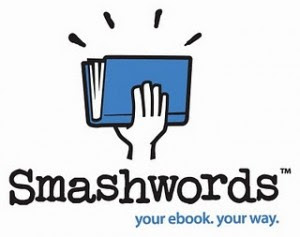If you were thinking of trying out Amazon KDP Select, now's the time.
Today Amazon sweetened the KDP Select pot, adding a total of 1.5 million dollars to be paid out to authors over the next three months. A total of 700,000 dollars of that money will be dispensed in the month of December effectively doubling the amount of money an author can make during the peak buying month.
Here's the relevant section from
Amazon's press release:
[A]uthors can earn a share of both the regular monthly fund and
the bonus every time their book is borrowed from the Kindle Owners’
Lending Library on Amazon.com, Amazon.co.uk, Amazon.de and Amazon.fr (Kindle Direct Publishing Adds $1.5 Million Holiday Bonus for KDP Select Authors)
How much money can an independent author make if they enroll their book in Amazon's KDP Select program? There are no concrete answers, but more than ever before.
- Over the past year Amazon has paid out 7
million dollars to writers who have enrolled their books in the KDP Select program. That's a little less than $600,000 a month.
- Over the month of December Amazon will add a bonus $700,000 into the pot IN ADDITION to the regular $700,000 that goes to KDP Select authors. But that's
only for December. The remainder of the 1.5 million will be paid out to authors over January and February of next year.
The upshot: Over the Christmas season, the season you're likely to sell and lend the most, you'll get twice the payoff. But you'll have to put all your eggs in the Amazon KDP Select basket.
Is The Sweetened Pot Worth The Price Of Exclusivity?
First let's give Amazon their say. What are the pros?
1. A massive amount of ereaders = record numbers of sales and borrows
Amazon has obliterated all its previous records for Kindle sales over the last few months. I'd love to have hard numbers regarding exactly how many Kindles there are in the world versus iPads and Nooks, but what really matters is who buys and reads the most ebooks.
According to Bowker "
Amazon dominates the world ebook market" and in May of 2012
Digital Book World announced that the Kindle was by far the reading devise most frequently used to read an ebook.
Even more interesting is Bowker's observation that "35% of ebook buyers are power buyers, and they buy 60% of ebooks & spend 48% of the market". I wonder whether power buyers are equally distributed between the platforms, or whether Amazon has more of them. I remember Jeff Bezos said that, on average, after a person buys a Kindle they read 4 times as many ebooks than they did previously. (See:
Jeff Bezos: Amazon Makes No Money On Sales Of Kindle Ereaders Or Tablets)
2. Double the money
Depending on the number of books you have for sale and how new those books are, you'll stand to make more than double what you made in KDP Select last year, all things being equal.
But things are never equal. First of all, there will be MANY more Kindles in peoples' hands this year than there were last year and more people enrolled in Amazon Prime (it's only Amazon Prime folks who can borrow books from Amazon's lending library).
3. Access to Amazon's best seller lists around the world
Amazon mentions that 500 Select books have placed in their top 100 lists worldwide. Getting your book in the top 100 is terrific for sales, not only of your current book but for all your other books as well. (See:
Amazon Ranks Authors In Terms Of Their Book Sales).
Unfortunately Amazon hasn't mentioned how many KDP titles (versus Amazon KDP Select) made it into the bestseller lists, nor do they mention how many books are enrolled in Amazon Select, so it's difficult to know what to make of that figure.
Mark Coker: Think Twice Before Accepting Amazon's Sweetened Deal
Should authors enroll their books in Amazon's KDP Select program? Mark Coker, founder of Smashwords, says NO,
hell no! (See:
Amazon The Grinch ...)
Mark Coker writes:
I contended, and still contend, that exclusivity is a devil's bargain. When authors go exclusive with any retailer, they increase their dependence upon that single retailer, limit long-term platform building at other retailers, disappoint fans who shop at other stores, and hobble the development of a thriving and competitive ebook retailing ecosystem.
As you can imagine, Mark Coker isn't happy about Amazon's move to monopolize independent book sales over the holiday season.
Let's address each of these points. Mark Coker contends that if an author enrolls their books in Amazon's KDP Select program they:
A. Increase their dependence upon that single retailer
Yes. Absolutely. At least, authors
would increase their dependence on Amazon if they kept all their books in the Select program. But what about those authors who employ a mixed strategy? For instance, those authors who only enroll their books in Amazon's Select program when they're first released and
then, after the 3 month term has elapsed, remove them from the program and distribute them as widely as possible.
Wouldn't authors employing a mixed strategy enjoy the best of both worlds? Your book would get an initial bump in readership because of the perks Select offers (free days and inclusion in Amazon's library) and then, after its term in the program ended, you could pull your book out and distribute it as widely as you wanted.
B. Disappoint fans who shop at different stores
Certainly if a fan doesn't have access to the Amazon store they would not be able to buy your Amazon Select books, but I haven't seen any data on how many folks are cut off from accessing Amazon's store versus other stores. In North America most people have access to all the estores but I have no data on how it is for the rest of the world.
If (for instance) Smashwords is much more accessible in certain parts of the world, parts of the world where your fans live, then this is a strong objection. If, on the other hand, Amazon can be assessed from all the places Smashwords can, the objection loses some 'oomph'.
True, some folks don't want to buy a book from Amazon, and if your book is in Select there's no other way to get it.
Perhaps knowing your fan base could help you decide. You could put a poll up on your website or send email out to your mailing list. Ask your fans how they would feel if you enrolled your books in Amazon Select.
C. Hobble the development of a thriving and competitive ebook retailing ecosystem.
For me, this objection is the least convincing.
First,
would enrolling your book in Amazon's KDP Select program "hobble the development of a thriving and competitive ebook retailing system"? I'm not convinced and here's why. It's difficult for foreigners to get their books into Barnes & Noble, you can't do it directly. The only way is to enroll them in Smashwords and then Smashwords distributes them to Barnes & Noble.
I haven't heard anyone raise a fuss about this. Is Barnes & Noble hobbling the development of a thriving and competitive ebook retailing system?
I think that whether Amazon KDP Select will hobble the ebook retailing system is yet to be determined.
Second, even if publishing exclusively through Amazon DID harm the ebook retailing system it seems as though Mark Coker is asking folks to pass up probable gains in favor of not causing an unspecified harm to something nebulous (what exactly IS the 'ebook retailing system'?) at some point in the future.
Third, Smashwords stands to lose from what Amazon is doing, it stands to lose BIG. Coker isn't arguing as an uninterested party, he has stakes in this game, big states, and he's asking authors to continue to support Smashwords because ... well, because we want the ebook retailing ecosystem to thrive.
I think most indie authors are interested in where they'll make the most money over the month of December. After all, if you're like me, you have rent to pay, groceries to buy, not to mention the extra expenses of the Christmas season.
Against this someone might reply that those are
short term reasons and I should be thinking
long term but the fact is that we really don't have any statistics which will tell us what the long term is going to be.
Okay, that's my 2 cents! I've been writing impassioned blog posts lately, I wonder if something is in the air.
What do you think? Are you going to put any of your books into Amazon's KDP Select program?
By the way, just before I hit "publish" I noticed that
Passive Guy had weighed in on Mark Coker's post. He wrote:
Mark Coker makes a lot of his Silicon Valley background. PG has been
involved with many tech companies large and small. The good ones never
complained about their competition. Instead they focused on building
better products and services than their competition offered.
Other articles you might like:
-
Does Amazon KDP Select Drive Away True Fans?
-
Amazon's KDP Select: The Best Long-Term Strategy?
-
Crowdfunding: Cutting Out The Middleman
Photo credit: "
Bengal Tiger / Tigre de Bengala (Panthera Tigris)" by
Esparta under
Creative Commons Attribution 2.0.







